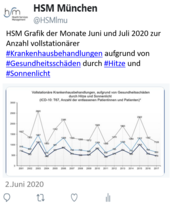Ensuring access to health care — Germany reforms supply structures to tackle inequalities.
| Authors/Editors: |
Ozegowski, S Sundmacher, L. |
|---|---|
| Publication Date: | 2012 |
| Type of Publication: | Articles in Refereed Journals (International) |
| ISBN/ISSN: | 0168-8510 |
| erschienen in: | Health Policy |
| Weitere Quellenangabe: | Volume 106(2), Pages 105-9 |
Abstract
Germany's ruling coalition has recently introduced a new bill to Parliament, the Care Structures Act (CSA), which aims to improve outpatient care supply structures, decentralize decision-making, facilitate cross-sectoral treatment, and strengthen innovation in the nation's health care sector. These objectives are to be achieved through a variety of measures, including changes in financial incentives for physicians, the transfer of decision-making to the regional level, and the creation of a new sector for highly specialized care.
The opposition parties in Parliament and most health care stakeholders agree on the objectives of the reform package, but their evaluation of the bill is mixed. Physicians’ representative organizations generally deem the law to be headed in the right direction, while the opposition parties, sickness funds, patients’ rights groups and a majority of German federal states (Bundesländer) feel it does not adequately address the issues of supply inequity and sectoral division.
This skepticism seems well founded. The reforms aimed at attracting physicians to high-need regions have significant shortcomings, and the measures to overcome sectoral barriers between the outpatient care and hospital sectors remain weak. Furthermore, the new procedure for including innovative treatment methods in the SHI benefits catalogue falls short of internationally recognized standards.





